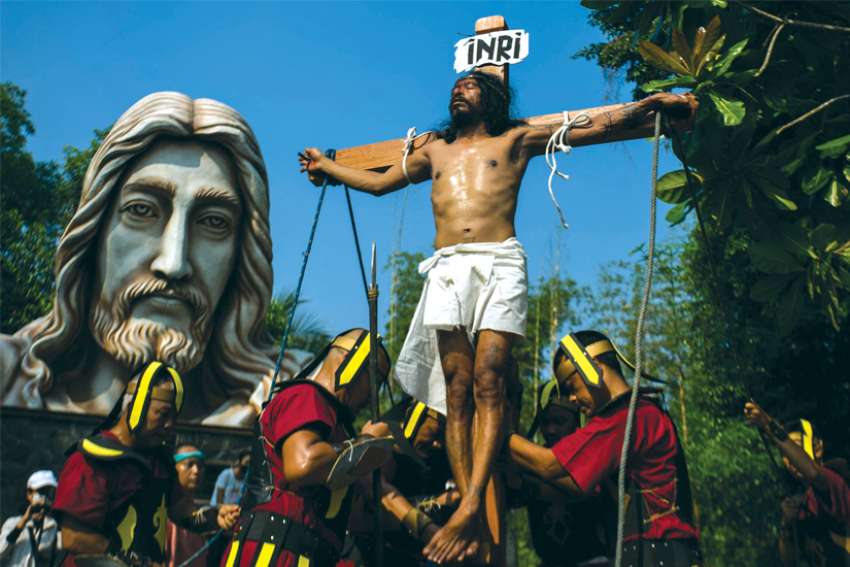The immutability of God is seen in new light through the event of the Son emptying Himself by His incarnation and then accepting the most humiliating of deaths. In the tomb, Christ is dead, utterly unaware, passive and with no sense of triumph. Yet, again God enters history to glorify His Son by raising Him from the powerlessness of the grave, not to fix everything in the world, but to enter eternal glory.
The great theologian Hans Urs von Balthasar describes existence in the tomb as silence, dust, no hope of return, no activity, no joy, no praising of God and no knowledge of what takes place on Earth. For Christ to redeem humanity, He must be human to the point of death.
Christ rejected power from the moment of His conception. He turned away again when the Devil tempted Him in the desert. Then He accepted the horror of the Cross. His final rejection of power came when He rose, not to become king of the world, but to return to the Father.
The Second Reading on Easter morning reminds His followers to “seek the things that are above,” not those that are on Earth. This search leads to our sharing in divine life, the unfathomable fulfillment of what it means to be human.
In his book, Mysterium Paschale: The Mystery of Easter, Balthasar puts the situation starkly: “To be a Christian means to come to the Cross.” This is not some perverse self-flagellation. Through the Cross, we are united with Christ’s sufferings, share in His death and receive eternal life.
In our age of unparalleled prosperity, this may sound harsh. We have striven to build lives of comfort, pleasure and an established place in society. These things are not evil in themselves, but they contain an almost irresistible pull to forsake those things that are above. The saints recognized this. The Cross is horrible but infinitely fruitful.
Christ’s self-emptying love reveals the Trinity. Strict monotheism knows only a God of power. But through His incarnation, suffering, death and resurrection, Christ unveils the truth about God — that in the centre of divinity is the absolute love of three persons, persons who do not cling to what is their own but who recklessly abandon self-interest to give themselves entirely to the other.
In generating the Son, the Father makes Himself totally destitute. The love of the Father for the Son and the Son for the Father is such utter abandonment that a third is spirated, the Holy Spirit. All three are one in being through their self-giving.
This divine self-abandonment then stretches into the realm of humanity. God is love, He loves us. The Son forsakes power and divine privilege by entering into the realm of creation. On the Cross, He yields everything to the Father.
God’s absolute power is in fact absolute love. In choosing to allow the “event” of paschal mystery into the life of God, God reveals that such love transcends the unchangeable divine nature. Human understanding of divine attributes, such as immutability and omnipotence, offers but the palest shadow of their reality.
What does this mean for us? First, it means that Christ breathes His Holy Spirit on the disciples in the Upper Room on Easter evening. They and all who will be baptized into Christ’s death and resurrection will thus participate in the interpenetrating reciprocal love of the three persons. Awesome! Second, our quest for personal autonomy soils our communion with the triune God. We are one body, not Lone Rangers.
Third, human freedom, like divine freedom, is expressed not through clinging to our rights and privileges. Rather, freedom means to abandon everything for the love of God and neighbour.
Of course, we are not so free as all that. We remain enslaved to sin. But Christ has shown the way and given us a share in God’s grace. The self-abandoning love inherent in the Incarnation, Cross and Easter are our source of hope.
(Glen Argan writes his online column Epiphany at https://glenargan.substack.com.)


